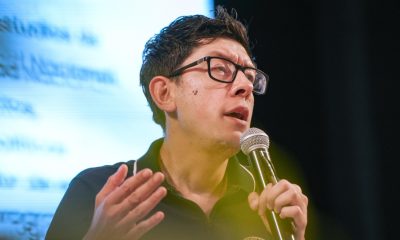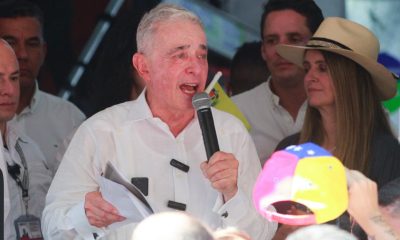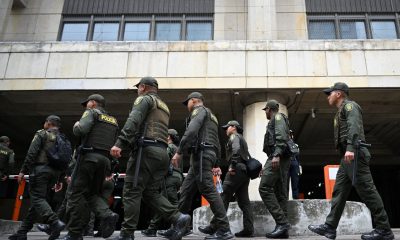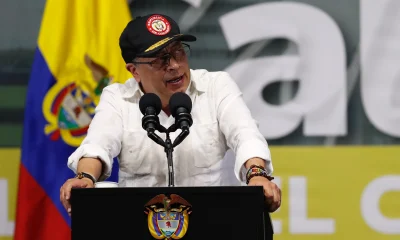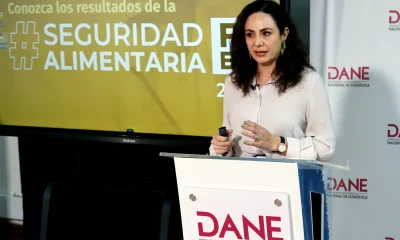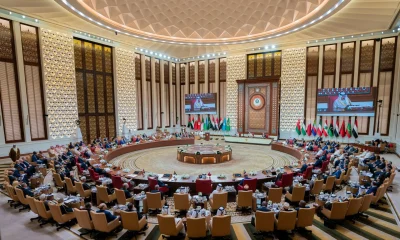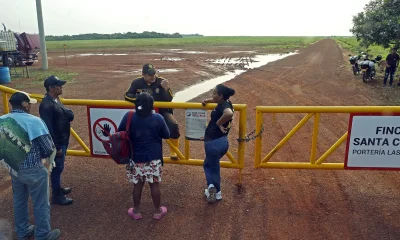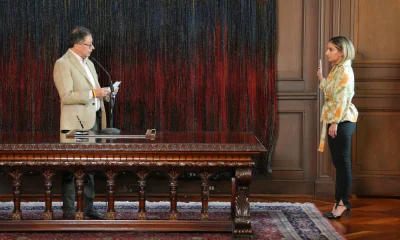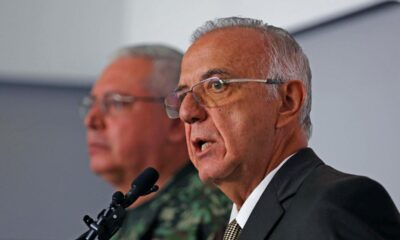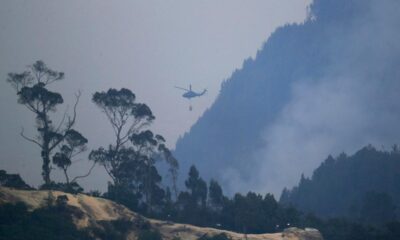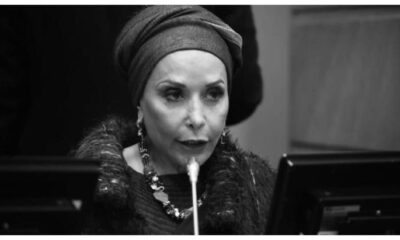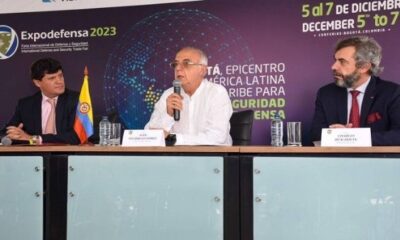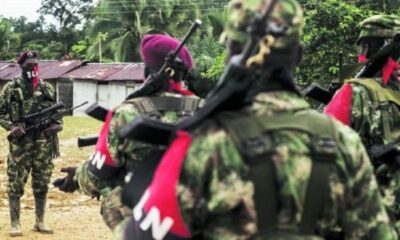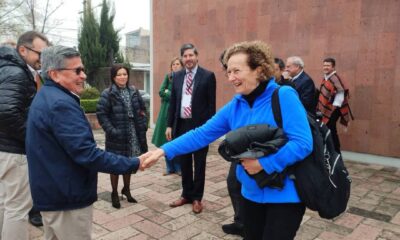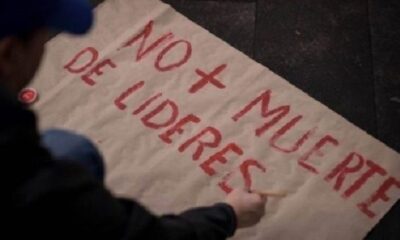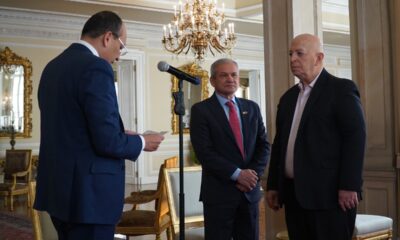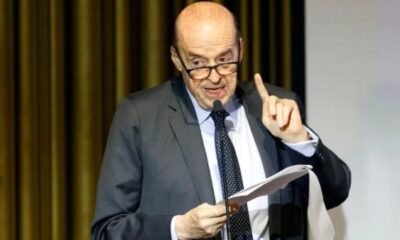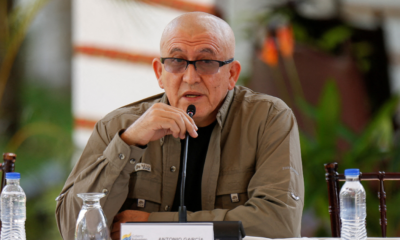International
Colombia government weakened by ‘truce’ mishap: analysts
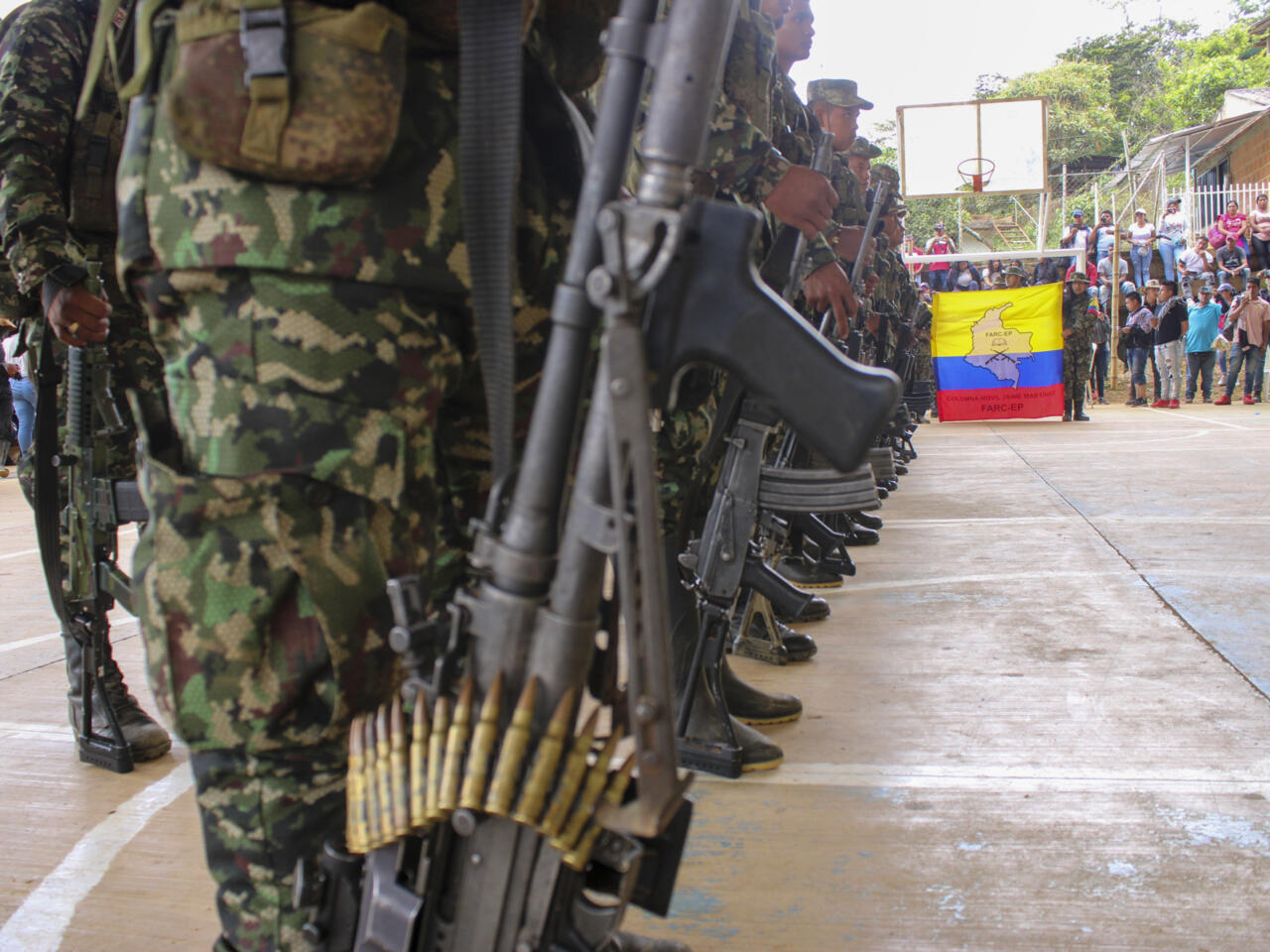
January 6th | By AFP |
In announcing a “bilateral” ceasefire before it existed, Colombian President Gustavo Petro may have weakened his government in ongoing peace talks with armed groups, experts say.
Petro’s New Year’s Eve declaration was hailed by the United Nations and others as a step towards the “total peace” Colombia’s first-ever leftist president has vowed to bring to the country.
But the ELN guerrilla group poured cold water all over Petro’s declaration just three days later, denying the group had entered into any such deal, and the government conceded that nothing was signed.
Whether a calculated ploy to pile pressure on the ELN or mere miscommunication, Petro’s move was a “mistake” that harmed “the legitimacy of the peace negotiations,” conflict expert Laura Barrios of Rosario University told AFP.
“The biggest challenge here will be how the government will regain the trust of the ELN,” she said.
For analyst Felipe Botero of the University of The Andes in Bogota, the events “revealed inexperience and political clumsiness.”
It was a “setback for the government,” said Botero, but would not necessarily compromise the talks themselves.
‘Renewed hope’
On December 31, Petro announced that a ceasefire had been agreed with the country’s five largest armed groups, including the National Liberation Army (ELN), from January 1 to June 30.
The government subsequently said the ceasefire would be monitored by the United Nations, Colombia’s human rights ombudsman and the Catholic Church.
UN Secretary General Antonio Guterres said the supposed deal brought “renewed hope for comprehensive peace to the Colombian people as the New Year dawns.”
But then on Tuesday, the ELN said it had “not discussed any bilateral ceasefire with the Gustavo Petro government, therefore no such agreement exists.”
The group added that “a unilateral government decree cannot be accepted as an agreement.”
This prompted the government to concede Tuesday that a proposed ceasefire decree had not been signed, and the following day to announce a suspension of a truce that never existed in the first place.
Petro, an active social media user, has been quiet in recent days.
‘More expensive’
Both the government and ELN have said the question of a ceasefire will be raised again in Mexico when talks resume later this month.
Negotiations between the government and the ELN, the country’s last recognized rebel group, have been underway since November.
A first round of peace talks since Petro came to power in August concluded in Caracas, Venezuela on December 12 without a truce being agreed.
The ELN has already accused Petro of acting just like former “traditional governments” with which previous attempts at peace negotiations had failed.
Political commentator Andres Mejia Vergnaud said a ceasefire agreement has just become “more expensive.”
“The government needs it a lot more, and the other side will get more in return,” he said.
Petro’s announcement had also included two dissident splinter factions of the disbanded FARC guerrilla group, the Gulf Clan narcotics outfit and the Self-Defense Forces of the Sierra Nevada, a right-wing paramilitary group.
The ELN, which has an estimated 3,500 members, is the only group to have refuted the existence of a truce, though the others will be watching closely what happens next.
“We can imagine a scenario in which these actors say ‘look at what they’ve done with the ELN, we’d better take a break,’” in negotiations, said Barrios.
‘Lies’
Colombia’s right-wing opposition, still reeling from electoral defeat last year, has meanwhile jumped on Petro’s apparent misstep.
Petro’s “lies put Colombians in danger,” charged Senator Miguel Uribe of the Democratic Center party.
For his part, defeated conservative presidential candidate Federico “Fico” Gutierrez said Petro’s announcement of something that was “not true” was a blow for security in a country in the grip of decades of violence.
“The most serious aspect of this is that the government has manacled the security forces and the civilian population is defenseless,” tweeted Gutierrez. “This is delivering the country to criminal groups.”
For Leon Valencia, director of the Peace and Reconciliation Foundation think tank, the apparent blunder has given the opposition a “huge” opening for hammering the executive.
“The opposition can say with reason that ‘these people are very disorganized, they are not on the same page,’ and that harms the image of the government,” he said.
International
U.S. Senate Rejects Budget, Bringing Government Closer to Shutdown Amid DHS Dispute

The U.S. Senate voted on Thursday against a budget proposal in a move aimed at pressuring changes at the Department of Homeland Security (DHS), following the killing of two civilians during a deployment of immigration agents in Minneapolis.
All Senate Democrats and seven Republican lawmakers voted against the bill, which requires 60 votes to advance, pushing the country closer to a partial government shutdown that would cut funding for several agencies, including the Pentagon and the Department of Health.
The rejection came as Senate leaders and the White House continue negotiations on a separate funding package for DHS that would allow reforms to the agency. Proposed measures include banning Immigration and Customs Enforcement (ICE) agents from wearing face coverings and requiring them to use body-worn cameras during operations.
The vote took place just hours after President Donald Trump said he was “close” to reaching an agreement with Democrats and did not believe the federal government would face another shutdown, following last year’s record stoppage.
“I don’t think the Democrats want a shutdown either, so we’ll work in a bipartisan way to avoid it. Hopefully, there will be no government shutdown. We’re working on that right now,” Trump said during a Cabinet meeting at the White House.
International
Trump Says Putin Agreed to One-Week Halt in Attacks on Ukraine Amid Extreme Cold

U.S. President Donald Trump said on Thursday that he secured a commitment from Russian President Vladimir Putinto halt attacks against Ukraine for one week, citing extreme weather conditions affecting the region.
“Because of the extreme cold (…) I personally asked Putin not to attack Kyiv or other cities and towns for a week. And he agreed. He was very pleasant,” Trump said during a Cabinet meeting broadcast by the White House.
Trump acknowledged that several advisers had questioned the decision to make the call.
“A lot of people told me not to waste the call because they wouldn’t agree. And he accepted. And we’re very happy they did, because they don’t need missiles hitting their towns and cities,” the president said.
According to Trump, Ukrainian authorities reacted with surprise to the announcement but welcomed the possibility of a temporary ceasefire.
“It’s extraordinarily cold, record cold (…) They say they’ve never experienced cold like this,” he added.
Ukrainian President Volodymyr Zelensky later commented on the announcement, expressing hope that the agreement would be honored.
International
Storm Kristin Kills Five in Portugal, Leaves Nearly 500,000 Without Power

Storm Kristin, which battered Portugal with heavy rain and strong winds early Wednesday, has left at least five people dead, while nearly half a million residents remained without electricity as of Thursday, according to updated figures from authorities.
The revised death toll was confirmed to AFP by a spokesperson for the National Emergency and Civil Protection Authority (ANPEC). On Wednesday, the agency had reported four fatalities.
Meanwhile, E-Redes, the country’s electricity distribution network operator, said that around 450,000 customers were still without power, particularly in central Portugal.
Emergency services responded to approximately 1,500 incidents between midnight and 8:00 a.m. local time on Wednesday, as the storm caused widespread disruptions.
The Portuguese government described Kristin as an “extreme weather event” that inflicted significant damage across several regions of the country. At the height of the storm, as many as 850,000 households and institutions lost electricity during the early hours of Wednesday.
Several municipalities ordered the closure of schools, many of which remained shut on Thursday due to ongoing adverse conditions.
Ricardo Costa, regional deputy commander of the Leiria Fire Brigade, said residents continue to seek assistance as rainfall persists.
“Even though the rain is not extremely intense, it is causing extensive damage to homes,” he noted.
In Figueira da Foz, a coastal city in central Portugal, strong winds toppled a giant Ferris wheel, underscoring the severity of the storm.
-

 International4 days ago
International4 days agoU.S. Senate Rejects Budget, Bringing Government Closer to Shutdown Amid DHS Dispute
-

 Central America3 days ago
Central America3 days agoPanama Supreme Court Strikes Down Panama Ports Concession as Unconstitutional
-

 International4 days ago
International4 days agoStorm Kristin Kills Five in Portugal, Leaves Nearly 500,000 Without Power
-

 Central America3 days ago
Central America3 days agoU.S. and Guatemala Sign Trade Deal Granting Zero Tariffs to Most Exports
-

 International4 days ago
International4 days agoMan Arrested After Vehicle Crashes Into Jewish Institution in Brooklyn
-

 International4 days ago
International4 days agoTrump Says Putin Agreed to One-Week Halt in Attacks on Ukraine Amid Extreme Cold
-

 Central America1 day ago
Central America1 day agoCosta Rica Goes to the Polls as Voters Choose Continuity or Change































